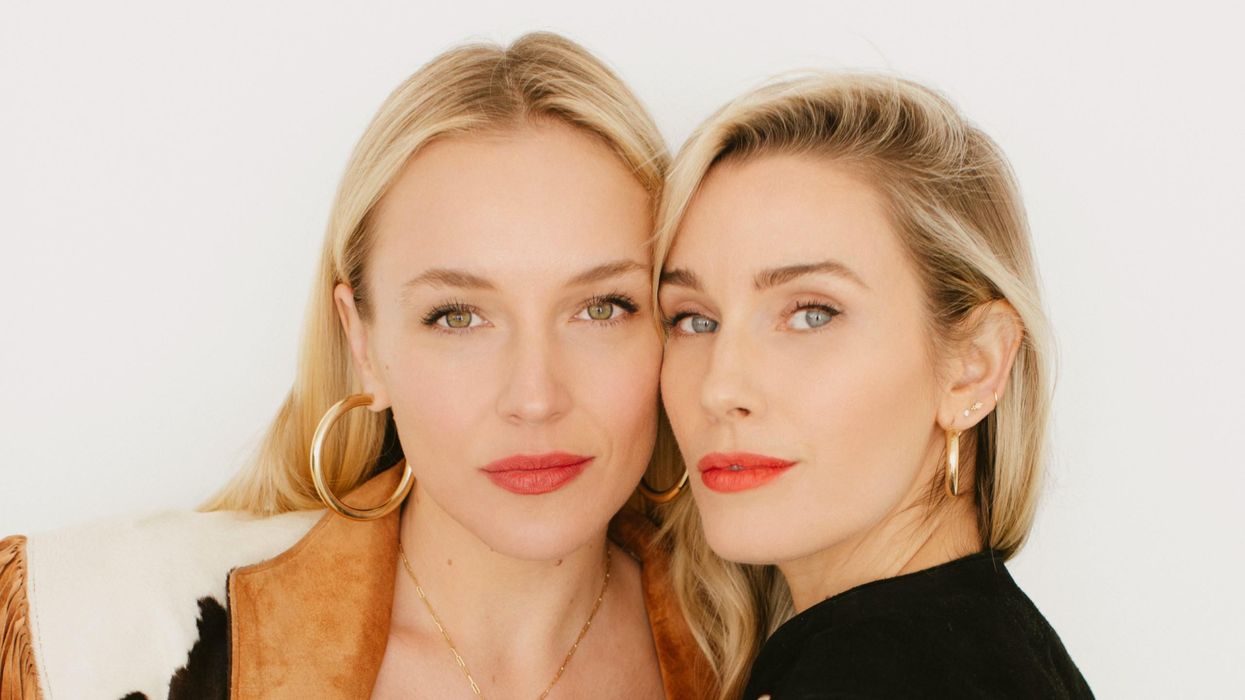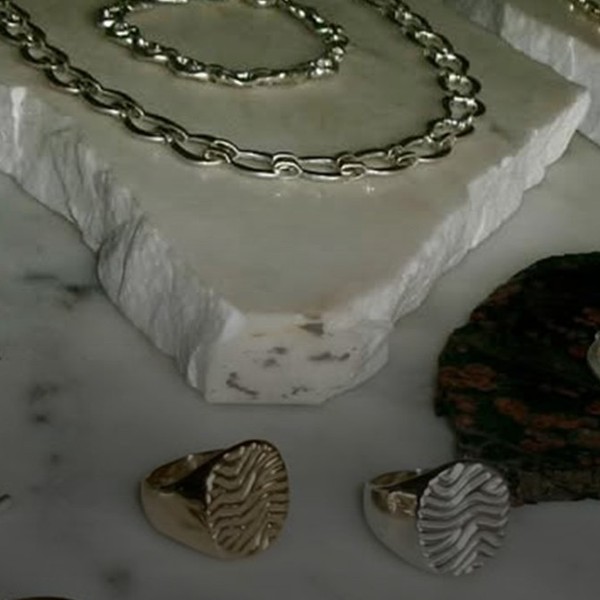The Sakara Life Founders on Finding Balance Without Sacrificing Joy
"Imbalance is when you're not doing any of the things that bring you joy because you're afraid you're going to fall off the wagon."

Welcome to The Simple Things, a wellness series dedicated to the routines and rituals that bring a sense of well-being to our daily lives. As the name implies, sometimes it’s not about making seismic shifts in our day-to-day—simple actions can be just as impactful for ourselves and for those in our community. This week, we’re chatting with Danielle Duboise and Whitney Tingle, best friends and founders of Sakara Life—a plant-based meal delivery service—about their company, how they stay grounded as their brand continues to grow, and more.
You both grew up in Arizona and had a very wellness-centered upbringing, but when you moved to New York City that went out the window. What changed?
Whitney Tingle: "My parents moved to Sedona in the '70s. Danielle's grandparents moved there in the '70s; a lot of people were flocking to Sedona in search of healing. My dad was an architect and a developer, but then he studied under a Reiki master and a kung fu master. Having those spiritual practices alongside his day-to-day work was something most people in Sedona had. There was that common thread of seeking something higher, something more.
My mom was very into healthy, natural food. I was that kid who would go to school with the natural peanut butter and jelly. Once the kids grew up and moved out, she filled in our swimming pool with rocks and dirt and turned it into her own big organic garden. So we were really raised with this understanding that if given the right tools and right ingredients, nature can heal. Your body can align itself. But life, as we learned from moving to New York City, can throw a hundred different things at you that throw you off balance.
Danielle and I both moved to New York for different reasons. Danielle was in school studying to become a doctor, and I moved out to New York to work on Wall Street. It was very different from our Sedona upbringing. Everything was super fast-paced and it was a culture of drinking and eating out. It totally threw us off balance. I had terrible cystic acne all over my face. I had hormonal imbalances. I had anxiety. And I was going to see different doctors for all of these different things. They put me on rounds and rounds of antibiotics and none of it worked.
I’ve gone through a similar situation where I was dealing with chronic pain and I saw doctor after doctor and tried everything they prescribed for me, but nothing worked either until I dealt with the cause of the problem, which was stress.
WT: One-hundred percent. I tried everything out there. I bought everything off of infomercials and even tried experimental lasers they were using to try to treat skin cancer. None of it worked because the acne was actually a symptom of what was going on inside. And what I discovered through working with Danielle, who had shifted her path to focus on nutrition, was that I didn't have a skin problem, I had a gut problem. And once I changed my diet, my acne went away. All these doctors I was talking to, I asked them, 'Does it have to do with my diet and what I'm eating?' And they'd respond, 'No, absolutely not. That's an old wive’s tale.'"
Why do you think they responded that way?
Danielle Duboise: 'Unfortunately, in conventional medicine, there isn’t really a focus on the impact of your environment and food on your health. They're trained to look for symptoms then prescribe based on that information. So the root cause protocol is not even in their training. So, in fairness to them, they're doing what they were trained to do. And it's really important work especially for acute care. If you break your leg, you want them to fix it on the spot and give you the medication you need. But for certain chronic conditions, they just don't have the tools.
At Sakara, our mission is really to give people the tools to sit in the driver's seat of their health, so they can actually transform their own lives. The changes are simple, but it can be hard for people to actually do them. I think there's some distrust that they actually work. Also, [the changes] might be simple in theory, but we all know that eating a diverse, clean, and holistic, plant-rich diet is really hard to do for breakfast, lunch, and dinner. It takes a lot of planning. It's hard to carve out 30 minutes of time for yourself. You almost need someone to tell you that you deserve to do it, that you deserve to feel good."
As your company has grown, have you been able to continue to place your wellbeing first?
DD: "Personally, I’ve let go of the idea of balance being this place where I should live in and I let my pendulum swing. This isn’t just how I approach my work life, but my diet, too. It’s the idea that you're not supposed to just live in one place; there's no wagon to fall off of. When we're out dancing and drinking too much wine and pizza, you just have to know how you get yourself back to feeling really good. You have to know how to move yourself across the pendulum. And that experience is a [form of] nutrition in and of itself because it brought joy.
Moving around in that pendulum, that is balance. What is imbalance is when you're not doing any of the things that bring you joy because you're afraid you're going to fall off the wagon. I think releasing the idea that balance is one place was really important for me. I'd say one thing that has become a daily spiritual practice for myself is to remind myself that it's such a miracle that we're here, that we get to experience this life, that we're even sitting here talking about ways to feel better. We have so much control over our lives."
WT: "I would say a few things that have helped over the years would be one: getting to work with my best friend. We try to make it fun with each other, for our entire team. We have dance breaks in our team meetings and doing those things that bring joy because like I said before, there are a thousand things around us that are trying to stress us out and disrupt our harmony. We have to have a conscious effort to bring in moments of joy. Looking for joy and peace wherever you can and trying to put your energy [toward that] really helps."
Do you have any other rituals in your life that you do on a daily basis?
DD: "I'm really into guided meditations and I tend to do them when I'm putting my kids down [to sleep]. I don't think a lot of parents necessarily do bedtime the way I do, but I'm with my kids until they fall asleep and sometimes it's a long time. For a long time, I would be so stressed and it would be this anxious time. Then, I quickly realized this could be the most beautiful time of my day. Where would I rather be than laying in bed with my children? How can I use it to fill my cup and feel better at the end of it?"
WT: “I agree. I love to use Insight Timer when I'm putting my son to sleep and use that moment for myself as well. I think that he can feel my energy. And if I'm thinking about a billion different things and have a fast thought pattern going on, he can sense that. But if I'm relaxed and in a more meditative state, it relaxes him and puts him there as well.”




